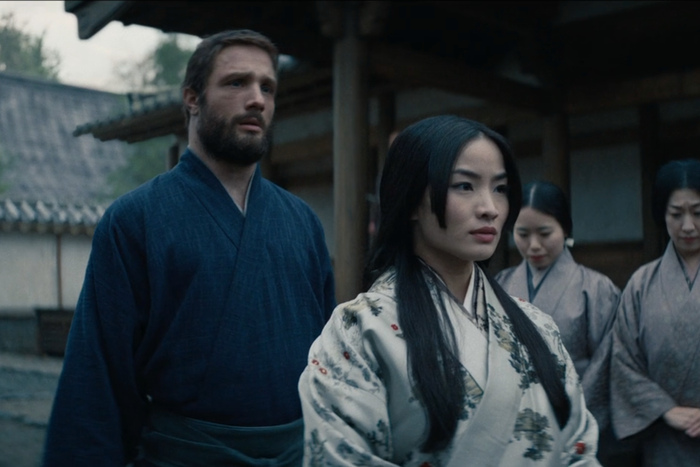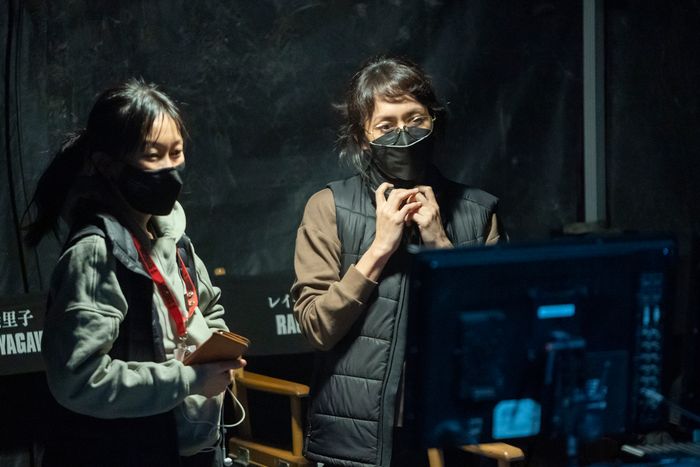Save this article to read it later.
Find this story in your accountsSaved for Latersection.
Shogunis a show about fate.

About cross-cultural differences, statecraft, chaos, about war never changing, and about getting my ship theErasmusback.
But most importantly,its a show about communication.
The making ofShogunmirrored these themes in many ways.

As a cross-cultural production shot in Canada, produced by Hollywood, filled with Japanese actors interpretation was key.
Ive done all sorts of things.
I started as an on-set interpreter.
My first job wasKill Bill.
Since then, Ive been servicing mostly American shows with Japanese elements.
But when the volume is so big and comprehensive, likeShogun,itbecomes producing.
On this show, Hiro and myself were brought on as producers from the get-go.
That was quite different.
A lot of times on other shows there will be an American producer overseeing the show.
Ill consult in this department or we need this bit translated, and they sort of put it together.
What was really great aboutShogunis that Hiro and I were able to see the entire process.
Nothing fell between the cracks.
Obviously, James Clavells novel was based on rigorous research and passion for Japanese culture.
Then the American writers, they write the script.
Then it goes to a team of Japanese translators in Tokyo.
Hiro and I are checking in at different stages.
So we wanted to check that it felt natural.
They have their own opinions and input, so we just kept polishing until the moment we roll.
When a script is translated, its not just one thing it could be.
There are so many different options.
There are so many ways to interpret one thing.
There is a lot of conversation for every single line.
So its a fine balance, which takes from a tradition of Japanesejidaigeki.
I think, generally, we went for the classic.
Whats your professional opinion of Mariko-sama as an interpreter?
I think shes a great diplomat.
So shes the best diplomatic interpreter.
Theyre great writers and the text is so loaded with beautiful nuances and a great sense of humor.
But there are things that are quite difficult to translate, sometimes.
Theyre not a natural part of our language or our culture.
So it becomes a conversation, how to preserve that in the most realistic way.
So a lot of balls were in the air.
To say thank you, you have to be super polite, and at the end say these honorifics.
It just becomes longer.
Justin also wanted to be respectful, and he was kind of enjoying that process.
I think Justin saw how he could incorporate that in the subtitles.
Your bio calls you bilingual and bicultural, which I love.
I like to be seen as bicultural.
Im familiar with different filmmaking processes.
Ive never worked on a project without interpreters present on set.
Inprevious interviewsfor which youve interpreted, the actors talked about how different they found theShogunset compared to Japanese productions.
I mean, every project is different.
In Japan, theres no union.
So I think working conditions can be a lot tougher.
Thats probably one of the big things.
They allow more time for actors to prepare for the role, training.
Theres just more time because theres more money.
I think Ive heard it in Japanesejidaigeki.
I think I have too.
But it was so insistent on the show.
I was like,Wow, were just going with pillow, okay.Its a good euphemism.
The Japanese euphemism for sex is to hold tight.
Literally, it means to hug.
So its not really as hard as the English.
Who swears the most in our show, other than Blackthorne?
At least thats what it looks like in translation.Yeah, he does.
And what word is being used when people discuss fate on the show?
What concept is that?Most of the time the wordshukumeiis used.
That basically means fate.
Theres another word calledunmei,which is more like destiny.
Theres a couple of lines that useunmeibecause its a little bit lighter.
In terms of nuance,shukumeiis a bit more loaded.Shukumeiis a very important concept for this show.
I think we use it very selectively, in the right places.
Buddhism and Shinto are very present.
Theyre quite seamlessly intertwined with politics.
Temples had a lot of power, certain relationships with lords.
Can you think of a specific time where the translation process was especially nuanced?
That made you go,Wow, this really took some time, but we figured it out eventually.Many.
But, you know, you kind of forget the hard things.
And at the end, the subtitle says The council will answer to me.
I mean, thats what she isreallysaying, thats her intention.
But she wouldnt say that.
So in Japanese shes saying, Lets hear what they have to say.
But I think the subtitle needed to get more to the point.
That was one of the more difficult choices that we needed to make.
There are many of those on a smaller scale, many lines that needed to be deliberated and adjusted.
But I thought that was a pretty interesting example of how different it can be.
I do, yeah.
You worked onLost in Translation, right?Yeah, but as a PA in prep.
Ill say that, when youve been interpreting for me, Ive been grateful for your concision.
I know I yammer.Youre thinking while youre talking.
Also I think sometimes interpreters are diplomats.
Im often involved with hiring and placing interpreters who work on set.
For better or worse, its part of the job.
This interview has been edited for length and clarity.